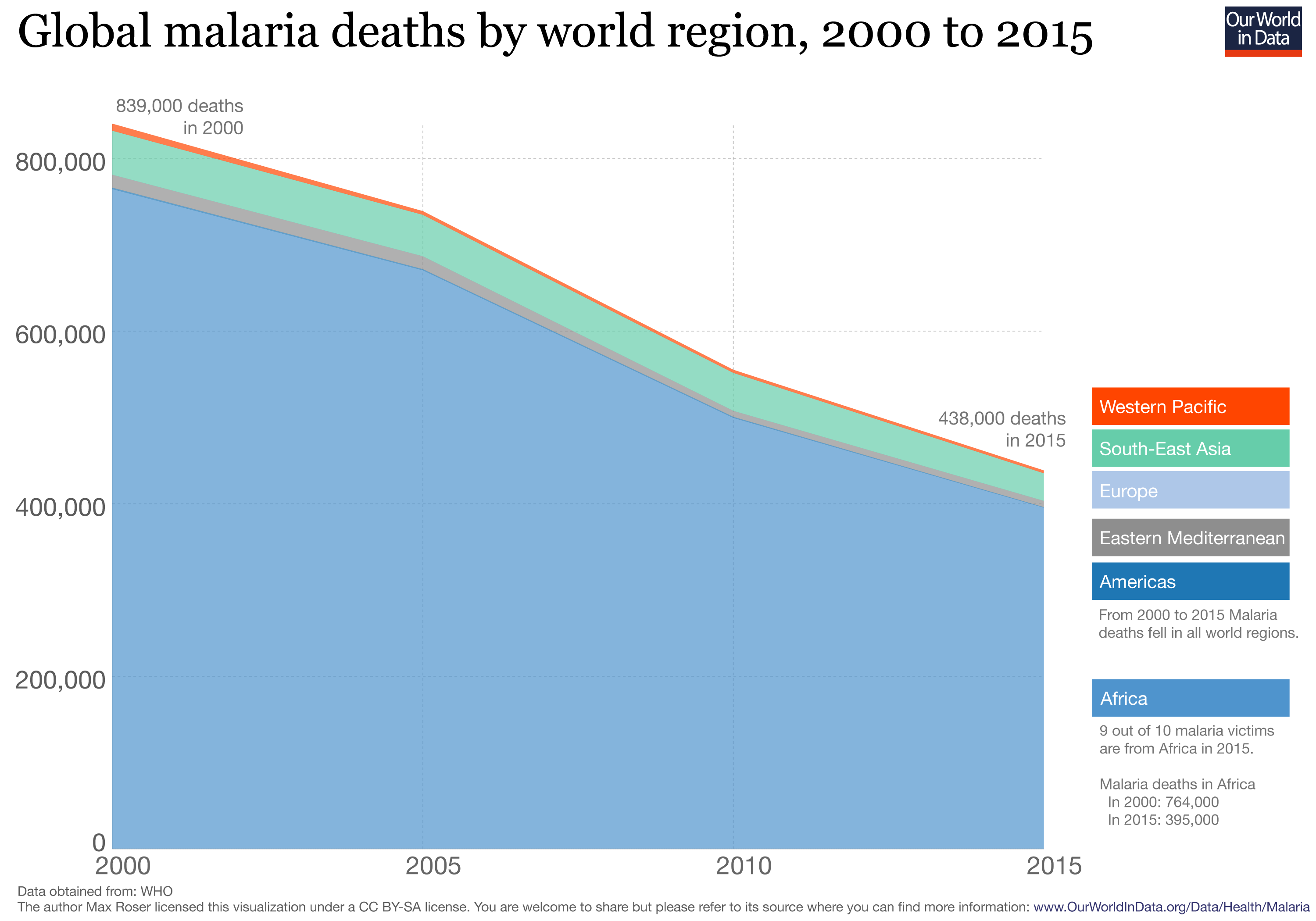Whoa now, Captain. Take it easy. Mosquitoes actually DO literally suck. Although it's not just the sucking that sucks. It's the...reverse...um...ok. Hold on here. Let's just illustrate since I can't talk.
So, you see, the mosquitoes suck, but while they're sucking, the malaria parasites get un-sucked. :/
Anyway, I think most people are probably fairly familiar with the fact that malaria is transmitted by mosquitoes. This fact actually makes mosquitoes the deadliest animals in the world.
Once in the bloodstream, the parasites proceed to the liver, where they mature & multiply for a bit, then proceed to infect and destroy the host's red blood cells. Eventually, the destruction of blood cells causes multiple organ failure, and, if untreated, death.
 |
| Infected red blood cells |
Last year, there were 438,000 deaths from malaria*. That's 1200 deaths a day. Most of these were in sub-saharan Africa, and most were children under the age of 5.
In Benin, there were at least 2 million cases of malaria, and an estimated 4400-8000 deaths in 2013*. The numbers are not well defined, as many cases occur in rural areas; they're never tested, treated, or directly confirmed.
The good news is, malaria rates are falling tremendously, thanks to the hard work of many NGO's in providing education, mosquito nets, pesticides, and other methods of mosquito population control. Malaria is also reasonably easy to treat, when it is caught early.
The bad news is, many deaths still occur when the disease is not detected, and when proper care and treatment is out of reach. In some areas as well, parasites have been found with resistance to some anti-malarial medications. This is a scary prospect.
So what can we do about it?
Well, here's a slightly scary, but potentially perfect solution. Something to chew on.
*WHO, 2015
*WHO, 2013








